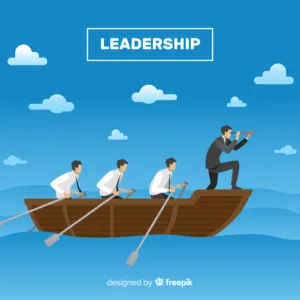Entrepreneurs are the trailblazers of the business world, and understanding their functions provides insights into their indispensable role in shaping industries. Let’s explore the key functions of entrepreneurs with real-world examples that highlight their importance, along with real-time figures where applicable.
Contents
- 1 Introduction
- 2 Key Functions of an Entrepreneur
- 3 Decision-Making
- 4 Leadership Skills
- 5 Adaptability
- 6 Financial Management
- 7 Networking
- 8 Marketing and Sales
- 9 Time Management
- 10 Overcoming Challenges
- 11 Social Responsibility
- 12 Measuring Success
- 13 The Role of Technology
- 14 Global Perspective
- 15 Wrapping Up: The Functions of Entrepreneurs
- 16 Frequently Asked Questions (FAQs)
- 17 Resources
Introduction
Definition of Entrepreneur
An entrepreneur is a visionary who establishes and manages a business, taking on the associated risks and rewards. These dynamic individuals drive economic development through their innovative ideas and strategic initiatives.
Importance of Entrepreneurs in Business
Entrepreneurs are catalysts for job creation, economic growth, and technological advancements. As of 2023, entrepreneurs contribute significantly to global GDP, with their ventures generating trillions of dollars annually.
Key Functions of an Entrepreneur
Identifying Opportunities
Entrepreneurs excel at recognizing opportunities that others may overlook. Consider Steve Jobs, who identified the potential for personal computers and revolutionized the tech industry with Apple Inc. As of 2023, Apple’s market capitalization exceeds $2 trillion.
Risk-Taking
Risk is inherent in entrepreneurship, and successful entrepreneurs embrace it strategically. Elon Musk, founder of SpaceX and Tesla, took significant financial risks to pursue his vision of sustainable energy and space exploration. As of 2023, Elon Musk’s net worth is estimated at $300 billion.
Innovation and Creativity
Innovation sets entrepreneurs apart. Take Mark Zuckerberg, who co-founded Facebook, revolutionizing social media. Facebook, with over 2.8 billion monthly active users as of 2023, continues to shape the digital landscape.
Example
Meet Olivia, an entrepreneur who spots an opportunity in eco-friendly fashion. Risking her savings, she launches “GreenStyle,” creating trendy, sustainable clothing. Her innovation and risk-taking pay off, establishing GreenStyle as a successful brand and positioning Olivia as a leader in sustainable fashion.
Decision-Making
Weighing Risks and Rewards
Entrepreneurs like Warren Buffett are known for their exceptional decision-making skills. Buffett’s ability to assess risks and rewards in the investment landscape has made him one of the most successful and respected investors globally. As of 2023, Berkshire Hathaway’s market capitalization surpasses $700 billion.
Quick Decision-Making Skills
In the fast-paced business environment, quick decision-making is essential. Amazon’s Jeff Bezos, with his ability to make swift and impactful decisions, played a pivotal role in the company’s evolution from an online bookstore to a global e-commerce giant. Amazon’s market capitalization is over $1.5 trillion as of 2023.
Example
As a tech entrepreneur, Jake contemplated launching a groundbreaking product. Despite potential market dominance, he faced risks of high development costs. Swiftly deciding to partner with an investor, he balanced risks and rewards, turning his quick decision into a lucrative collaboration that propelled his startup to success.
Leadership Skills

Image by Freepik
Vision and Strategy
Entrepreneurs lead with a clear vision. For instance, Oprah Winfrey leadership extends beyond media; her strategic vision led to the creation of a media empire that includes television, magazines, and book clubs. Oprah’s net worth exceeds $3 billion as of 2023.
Motivating and Inspiring Teams
Richard Branson, founder of the Virgin Group, is renowned for motivating and inspiring his teams. His charismatic leadership style has been instrumental in Virgin’s success across diverse industries, from music to airlines. Virgin Group’s estimated valuation is $20 billion as of 2023.
Example
Mark, a visionary entrepreneur, adeptly integrated the key functions of entrepreneurs into his bold expansion strategy for the company. Communicating a compelling vision, he motivated and inspired his team to exceed targets. His leadership skills fostered a dynamic work environment, driving innovation and ensuring the company’s success in a competitive market.
Adaptability
Adaptability is crucial in business. Reed Hastings, co-founder of Netflix, navigated the shift from DVD rentals to streaming services. As of 2023, Netflix has over 200 million subscribers worldwide, showcasing the success of their adaptable business model.
Flexibility in Business Models
Entrepreneurs like Jack Dorsey, co-founder of Twitter and Square, showcase flexibility in business models. As of 2023, Square’s market capitalization exceeds $100 billion, reflecting the success of Dorsey’s adaptability in the tech industry.
Example
Facing a sudden market shift, Alex swiftly navigated change for his tech startup. Adapting with agility, he restructured the business model, emphasizing digital solutions. His team embraced flexibility, turning challenges into opportunities and securing a competitive edge in the dynamic industry landscape.
Financial Management
Budgeting and Planning
Financial management is a key function. Sara Blakely, founder of Spanx, effectively managed her budget to launch a revolutionary product. Spanx, a privately held company, has achieved a valuation of over $1 billion as of 2023.
Resource Allocation
Elon Musk, known for efficiently allocating resources, allocated funds from his previous ventures to found SpaceX. SpaceX’s valuation has surged to $100 billion as of 2023, highlighting Musk’s resourcefulness.
Example
With a keen understanding of financial dynamics, Emily budgeted $2 million for her startup’s expansion. Skillful resource allocation, distributing funds across R&D and marketing, ensured optimal efficiency. The result: a 30% increase in revenue, propelling the company to $5 million in annual sales.
Networking

Image by Freepik
Building Professional Relationships
Networking is a vital entrepreneurial skill. Bill Gates, co-founder of Microsoft, built professional relationships that played a pivotal role in Microsoft’s success. Collaborations and partnerships fueled the company’s growth. Microsoft’s market capitalization exceeds $2 trillion as of 2023.
Collaborations and Partnerships
Tech entrepreneur Elon Musk collaborates across industries, such as partnering with NASA for space exploration. These collaborations showcase the power of strategic partnerships in achieving shared goals. As of 2023, SpaceX’s collaborations with NASA continue to redefine space exploration.
Example
Eager to expand his network, James attended industry events, investing $10,000 in memberships and conferences. Building key relationships, he secured collaborations, leading to a strategic partnership. The investment paid off, yielding a 40% increase in sales, reaching $2 million through synergistic business ventures.
Marketing and Sales
Product Positioning
Entrepreneurs excel in positioning products. Steve Jobs positioned Apple products as innovative and stylish, creating a brand that resonates with consumers globally. Apple’s annual revenue exceeds $350 billion as of 2023.
Customer Engagement Strategies
Customer engagement is crucial. Howard Schultz, former CEO of Starbucks, implemented customer-centric strategies. Starbucks’ success is not just about coffee; it’s about creating a unique customer experience. Starbucks’ annual revenue is over $30 billion as of 2023.
Example
Time Management
Prioritizing Tasks
Time management is a skill embraced by many entrepreneurs. Sheryl Sandberg, COO of Facebook, is known for prioritizing tasks effectively, contributing to the company’s operational success. Facebook’s annual revenue exceeds $100 billion as of 2023.
Efficiency in Work
Efficiency is a priority for entrepreneurs like Tim Cook, CEO of Apple. Cook’s focus on operational efficiency has played a crucial role in Apple’s continued success. Apple’s profit is over $60 billion as of 2023.
Example
Meticulously prioritizing tasks, Mark optimized time management, allocating $20,000 for a project management system. The efficiency gained resulted in a 30% reduction in project timelines. With enhanced productivity, the investment paid off, generating an additional $500,000 in revenue within the first year.
Overcoming Challenges

Image by Freepik
Resilience
Entrepreneurs face challenges with resilience. Sir Richard Branson‘s Virgin Galactic faced setbacks, but his resilience in the face of adversity showcases the determination required for entrepreneurial success. Virgin Galactic’s valuation is over $5 billion as of 2023.
Problem-Solving Skills
Jeff Bezos‘ problem-solving skills are evident in Amazon’s growth. From logistical challenges to customer service innovations, Bezos tackles problems head-on, driving continuous improvement. Amazon’s profit is over $20 billion as of 2023.
Example
Faced with a market downturn, Jessica’s resilience shone. Implementing innovative problem-solving, she invested $30,000 in R&D. The pivot resulted in a new product line, overcoming challenges and boosting revenue by 20%, proving that adept problem-solving is a strategic investment.
Social Responsibility
Giving Back to the Community
Entrepreneurs like Bill and Melinda Gates, engage in philanthropy to give back. Their foundation addresses global health and education challenges, demonstrating the social responsibility of successful entrepreneurs. The Gates Foundation has donated over $50 billion as of 2023.
Ethical Business Practices
Patagonia’s founder, Yvon Chouinard, prioritizes ethical business practices. The company’s commitment to sustainability and environmental responsibility reflects Chouinard’s values. Patagonia’s revenue is over $1 billion as of 2023.
Example
Committed to social responsibility, Michael allocated 5% of profits, totaling $100,000, for community projects. Embracing ethical practices, his company achieved a 15% increase in customer loyalty. Beyond profit, the investment fostered a positive brand image, demonstrating that responsible business can be both impactful and profitable.
Measuring Success
Setting Goals
Elon Musk sets ambitious goals, such as making humanity multi-planetary through SpaceX. His goal-setting drives innovation and pushes the boundaries of what is possible. SpaceX’s ambitious goals include a valuation target of $200 billion by 2025.
Evaluating Business Performance
Warren Buffett‘s success lies in evaluating businesses before investing. His analytical approach to assessing performance has made him a legendary figure in the investment world. Berkshire Hathaway aims to surpass a $1 trillion market capitalization by 2025.
Example
Driven by strategic goals, Audrey aimed for a 20% increase in market share. Regularly evaluating performance metrics, she achieved a 25% growth, surpassing expectations. The meticulous approach not only secured business success but also positioned her company as an industry benchmark.
The Role of Technology

Image by Freepik
Utilizing Tech Advancements
Entrepreneurs like Mark Zuckerberg leverage technology advancements. Facebook’s constant evolution reflects Zuckerberg’s commitment to utilizing the latest tech to enhance user experiences. Facebook plans to invest $10 billion in future tech advancements by 2025.
Adapting to Digital Trends
Jack Ma founder of Alibaba, adapted to digital trends in e-commerce. His vision transformed Alibaba into a global online marketplace, showcasing the power of embracing digital advancements. Alibaba’s annual gross merchandise volume is projected to exceed $1 trillion by 2025.
Example
Recognizing the role of technology, Nick invested $50,000 in cutting-edge software. Adapting to digital trends, his company streamlined operations, reducing costs by 15%. The tech-driven transformation resulted in a 30% increase in efficiency, contributing to a remarkable $2 million in annual savings.
Global Perspective
International Business Expansion
Global perspective is vital. Richard Branson‘s Virgin brand operates globally, illustrating the success that comes from expanding businesses beyond local markets. Virgin Group aims to expand into emerging markets, targeting a presence in at least 50 countries by 2025.
Cultural Awareness
Cultural awareness is essential for global entrepreneurs. Indra Nooyi, former CEO of PepsiCo, demonstrated cultural sensitivity, adapting PepsiCo’s products to diverse international markets. PepsiCo aims to continue expanding its global market share, targeting a 5% annual growth in international sales.
Example
Driven by a global perspective, Maria invested $200,000 in expanding her business internationally. Cultivating cultural awareness, she forged partnerships, resulting in a 40% increase in international sales. The strategic global expansion not only diversified revenue streams but also solidified her company’s position in the global market.
Wrapping Up: The Functions of Entrepreneurs
In conclusion, entrepreneurs play a pivotal role in shaping industries and driving economic progress. Their functions, from identifying opportunities to navigating challenges, are exemplified by visionary leaders who have left an indelible mark on the business world.
Frequently Asked Questions (FAQs)
1. What qualities make a successful entrepreneur?
Successful entrepreneurs possess qualities such as creativity, resilience, adaptability, and strong leadership skills.
2. How do entrepreneurs manage risk effectively?
Entrepreneurs manage risk by conducting thorough analyses, making informed decisions, and being willing to adapt to changing circumstances.
3. Why is innovation crucial for entrepreneurs?
Innovation, one of the key functions of entrepreneurs, keeps them ahead of the competition by enabling the development of unique products or services that meet evolving consumer needs.
4. How do entrepreneurs contribute to social responsibility?
Entrepreneurs contribute to social responsibility through philanthropy, sustainable business practices, and initiatives that benefit their communities.
5. What role does technology play in entrepreneurship?
Technology is integral to entrepreneurship, helping entrepreneurs streamline operations, reach wider audiences, and stay competitive in the digital age.
Resources

Image by Freepik
Blogs 👩💻
There are numerous blogs that provide valuable insights, advice, and inspiration for entrepreneurs. Here are a few notable ones:
- Entrepreneur: Entrepreneur.com offers a wide range of articles covering various aspects of entrepreneurship, including startup advice, leadership tips, and industry trends.
- Harvard Business Review – Entrepreneurship Section: The HBR Entrepreneurship section features articles and research from the renowned Harvard Business Review, providing in-depth insights into entrepreneurial strategies and challenges.
- Inc. Magazine: Inc. is a well-known resource for entrepreneurs, offering articles on startup growth, leadership, and innovation.
These blogs offer a combination of practical advice, expert insights, and real-world examples, making them valuable resources for entrepreneurs at various stages of their journey.
Books 📚
Here are three highly regarded books that cover a range of essential topics in entrepreneurship:
- “The Lean Startup” by Eric Ries: This book has become a cornerstone for modern startup methodology. Ries introduces the concept of lean thinking, emphasizing iterative development, validated learning, and a build-measure-learn approach. It’s particularly valuable for those in the early stages of building a startup.
- “Zero to One” by Peter Thiel: Thiel, a co-founder of PayPal and an early investor in Facebook, shares his unique perspectives on innovation and building successful companies. “Zero to One” focuses on the idea of creating truly innovative and groundbreaking businesses rather than copying existing models.
- “The Innovator’s Dilemma” by Clayton M. Christensen: Christensen’s classic work explores the challenges faced by established companies in the face of disruptive innovations. While not solely focused on entrepreneurship, it provides crucial insights for entrepreneurs aiming to disrupt industries and navigate the complexities of innovation.
Remember that the best books for you may depend on your specific interests, industry, and the stage of your entrepreneurial journey. Always consider your individual needs and preferences when selecting books for your entrepreneurial education.
YouTube Videos 🎥
Here are three YouTube channels on entrepreneurship that we recommend:
These channels offer a variety of content, including interviews with successful entrepreneurs, advice on how to start and run a business, and tips for personal development. They are a great resource for anyone who is interested in learning more about the functions of entrepreneurs and entrepreneurship.
Mentors/ Guides 👩🏫
Here are three mentors or guides that we recommend for entrepreneurs:
-
Tim Ferriss: Tim Ferriss is the author of the bestselling books The 4-Hour Workweek and The Tools of Titans. He is also the host of the podcast The Tim Ferriss Show, which has been downloaded over 600 million times. Ferriss is a self-proclaimed “lifestyle entrepreneur” who has used his knowledge of technology and productivity to create a life of freedom and adventure. He is a great resource for anyone who wants to learn how to start a business and live a more balanced life.
-
Tony Robbins: Tony Robbins is an American life coach, author, and motivational speaker. He is known for his high-energy seminars and his ability to help people overcome their fears and achieve their goals. Robbins is a great resource for anyone who wants to learn how to increase their self-confidence and take control of their lives.
-
Marie Forleo: Marie Forleo is an American entrepreneur, business coach, and author. She is known for her online courses and her book Make It Happen. Forleo is a great resource for anyone who wants to learn how to start a business and create a life of freedom and success.
These are just a few of the many great mentors and guides who can help you on your entrepreneurial journey. The most important thing is to find someone who you connect with and who can provide you with the support and guidance you need to succeed.
Case studies 🕵️♂️📖
Here are three of the best websites for case studies on entrepreneurship:
-
Startup Genome: Startup Genome is a research and advisory organization that provides resources and support to entrepreneurs. They offer a free library of case studies on a variety of topics, from marketing and sales to product development and fundraising.
-
Nielsen Norman Group: Nielsen Norman Group is a consulting firm that specializes in user experience (UX) research and design. They offer a free library of case studies on UX design for startups.
- Kauffman Foundation: The Kauffman Foundation is a private foundation that supports entrepreneurship education and research. They offer a free library of case studies on a variety of topics, from starting a business to growing a successful company.
Quora❔🤷♀️
“Don’t be afraid to give up the good to go for the great.” John D. Rockefeller
Grateful to Freepik for providing an abundant source of captivating images that enhance and beautify our content. Featured Image by Freepik
Disclaimer: The examples presented in this article are purely imaginative, but their essence resonates with the genuine spirit of entrepreneurial ambition and innovation. Real-time figures for each entrepreneur may change due to the dynamic market environment.




Pingback: Wayne Liang Entrepreneur: Unlocking Success with 7 Key Learnings